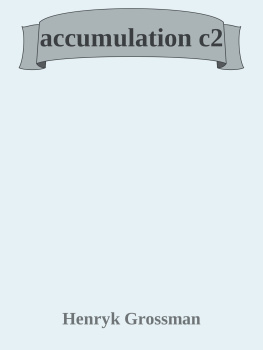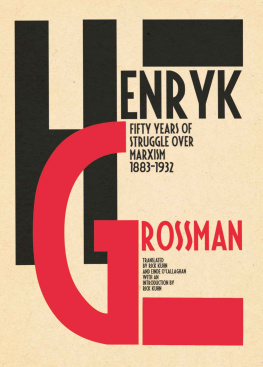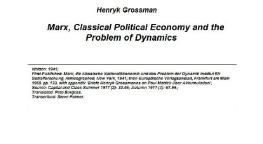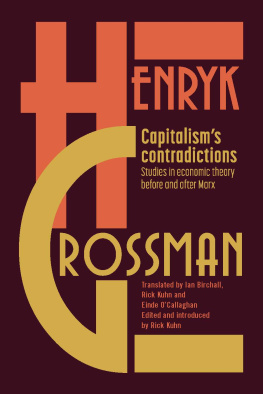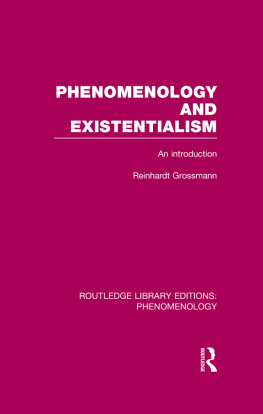Henryk Grossman - Law Of The Accumulation And Breakdown
Here you can read online Henryk Grossman - Law Of The Accumulation And Breakdown full text of the book (entire story) in english for free. Download pdf and epub, get meaning, cover and reviews about this ebook. genre: Romance novel. Description of the work, (preface) as well as reviews are available. Best literature library LitArk.com created for fans of good reading and offers a wide selection of genres:
Romance novel
Science fiction
Adventure
Detective
Science
History
Home and family
Prose
Art
Politics
Computer
Non-fiction
Religion
Business
Children
Humor
Choose a favorite category and find really read worthwhile books. Enjoy immersion in the world of imagination, feel the emotions of the characters or learn something new for yourself, make an fascinating discovery.
- Book:Law Of The Accumulation And Breakdown
- Author:
- Genre:
- Rating:3 / 5
- Favourites:Add to favourites
- Your mark:
- 60
- 1
- 2
- 3
- 4
- 5
Law Of The Accumulation And Breakdown: summary, description and annotation
We offer to read an annotation, description, summary or preface (depends on what the author of the book "Law Of The Accumulation And Breakdown" wrote himself). If you haven't found the necessary information about the book — write in the comments, we will try to find it.
Law Of The Accumulation And Breakdown — read online for free the complete book (whole text) full work
Below is the text of the book, divided by pages. System saving the place of the last page read, allows you to conveniently read the book "Law Of The Accumulation And Breakdown" online for free, without having to search again every time where you left off. Put a bookmark, and you can go to the page where you finished reading at any time.
Font size:
Interval:
Bookmark:
The present book forms part of a larger work to appear soon onthe tendencies of development of capitalism in the theory of Marx. Theorigins of this work lie in lectures prepared in the course of 1926-7at the Institut fur Sozialforschung for theUniversity of Frankfurt.
The results of my research are twofold: (1) for the first timeever the method underlying Capital has been subjected to areconstruction and (2) on this basis important areas of Karl Marx'ssystem of theory have been presented from a fundamentally newperspective. One of the new findings is the theory of breakdown whichis expounded below and which forms the cornerstone of the economicsystem of Marx. For decades this theory was at the centre of fiercecontroversies of theory. Yet in all that time no one ever attempted areconstruction or definition of its place in the system as a whole.
It would be a useless task to increase the dogmas surroundingMarxism with a new interpretation and simply reinforce the view thatMarxism has become purely a matter of interpretation. My view is thatthe unsatisfactory state of the literature on Marx is ultimately rootedin the fact - which will appear strange to some - that until today noone has proposed any ideas at all, let alone any clear ideas, aboutMarx's method of investigation. There has been a general tendency tocling to the results of the theory: these have been the focal point ofinterest, on the part of both critics as well as defenders. In all thisthe method has been totally ignored. The basic principle of anyscientific investigation - that however fascinating a conclusion mightappear, it is worthless divorced from an appreciation of the way inwhich it was established - was forgotten. A conclusion can after allonly become a matter of conflicting interpretation when it iscompletely divorced from the path that led to its formulation.
A proper exposition of Marx's method of investigation willhave to be left to my major work. The short methodological remarks thatfollow appear to me to be indispensable only insofar as they bear onthe understanding of the arguments of this book.
The real world of concrete, empirically given appearances isthat which is to be investigated. But in itself this is much toocomplicated to be known directly. We gain an approach to it only bystages. To this end we make various simplifying assumptions that enableus to gain an understanding of the inner structure of the object underinvestigation. This is the first stage of cognition in Marx's method ofapproximation to reality. It is the particular methodological principlethat finds its specific reflection in Marx's reproduction schemes,which form the starting-point of his entire analysis, and which alreadyunderlie the arguments of Capital Volume One. Amongthe numerous assumptions connected with the reproduction schemes arethe following: that the capitalist mode of production exists in anisolated state (foreign trade is ignored); that society consists ofcapitalists and workers alone (abstract from all so-called 'thirdpersons' in the course of our analysis); that commodities exchange atvalue; that credit is ignored; that the value of money is assumedconstant, and so on and so forth.
It is clear that thanks to these fictitious assumptions, weachieve a certain distance from empirical reality, even while thelatter remains the target of our explanations. It follows thatconclusions established on such a structure of assumptions can have apurely provisional character and therefore that the initial stage ofthe cognitive process must be followed by a second, concluding stage.Any set of simplifying assumptions will go together with a subsequentprocess of correction that takes account of the elements of actualreality that were disregarded initially. In this way, stage by stage,the investigation as a whole draws nearer to the complicatedappearances of the concrete world and becomes consistent with it.
Yet an almost incredible thing happened - people saw that Marxworks with simplifying assumptions but they failed to notice the purelyprovisional nature of the initial stages and ignored the fact that inthe methodological construction of the system each of the severalfictitious, simplifying assumptions is subsequently modified.Provisional conclusions were taken for final results. Otherwise it isquite impossible to understand how E Lederer could criticise Marx'smethod the way he does. He argues that simplification is part of anytheory but he himself would not wish to go as far in this direction asMarx because excessive simplification only creates problemsin the way of our understanding. If, like Marx we suppose the wholeeconomic universe to be composed only of workers and capitalists, thenthe sphere of production becomes too simple
This pure misunderstanding of Marx's method explains why FSternberg reproaches Marx for having analysed capitalismunder the quite unrealistic assumption that there is no non-capitalistsector. Such an analysis works with assumptions that have not beendemonstrated.
Anyone who has grasped the essence of Marx's method willimmediately be struck by the totally superficial character of thesecriticisms, and a critique of them would be quite superfluous. It isalso not difficult to see why in the existing debates on Marx's theorythe greatest confusion could and was bound to arise. Marx's method ofapproximation to reality is defined by two stages, sometimes eventhree. Entire phenomena and problems are tackled at least twice,initially under a set of simplifying assumptions, and later in theirfinal form. As long as this remains an obscure mystery, we shallrepeatedly run up against contradictions between the individual partsof the theory. To take one example, this is the source of the famous'contradiction' discovered by Bohm-Bawerk between CapitalVolumes One and Three.
The problem analysed in this book was tackled by Marx in threestages. Initially he examines the contradictions that define theprocess of reproduction in its normal trajectory, or he examines simplereproduction. At a second stage of his analysis, he focuses on theimpact of the accumulation of capital with its resulting tendencytowards breakdown. Finally, in the third stage Marx investigates thefactors that modify this tendency.
The question I shall examine is whether fully developedcapitalism, regarded as an exclusively prevalent and universallywidespread economic system relying only on its own resources, containsthe capacity to develop the process of reproduction indefinitely and ona continually expanding basis, or whether this process of expansionruns into limits of one sort or another which it cannot overcome. Inexamining this problem the moments specific to the capitalist mode ofproduction have to be drawn in. Ever since the beginnings of humanhistory it has always been the capacity of the individual worker withhis labour power L to set into motion a greatermass of the means of production M that hasindicated technological and economic progress. Technological advanceand the development of mankind's productivity are directly expressed inthe growth of M relative to L.Like every other form of economy, socialism too will be characterisedby technological advance in its immediately natural form M:L.
The specific nature of capitalist commodity production showsitself in the fact that it is not simply a labour process in whichproducts are created by the elements of production Mand L. Rather the capitalistic form of commodityproduction is constructed dualistically - it is simultaneously a labourprocess for the creation of products and a valorisation process. Theelements of production M and Lfigure not only in their natural form, but at the same time as values cand v respectively. They are used for the production of a sum of valuesw, and indeed only on condition that over and above the used up valuemagnitudes c and v there is a surplus s (that is, s = w - c + v). Thecapitalist expansion of production, or accumulation of capital, isdefined by the fact that the expansion of
Font size:
Interval:
Bookmark:
Similar books «Law Of The Accumulation And Breakdown»
Look at similar books to Law Of The Accumulation And Breakdown. We have selected literature similar in name and meaning in the hope of providing readers with more options to find new, interesting, not yet read works.
Discussion, reviews of the book Law Of The Accumulation And Breakdown and just readers' own opinions. Leave your comments, write what you think about the work, its meaning or the main characters. Specify what exactly you liked and what you didn't like, and why you think so.

